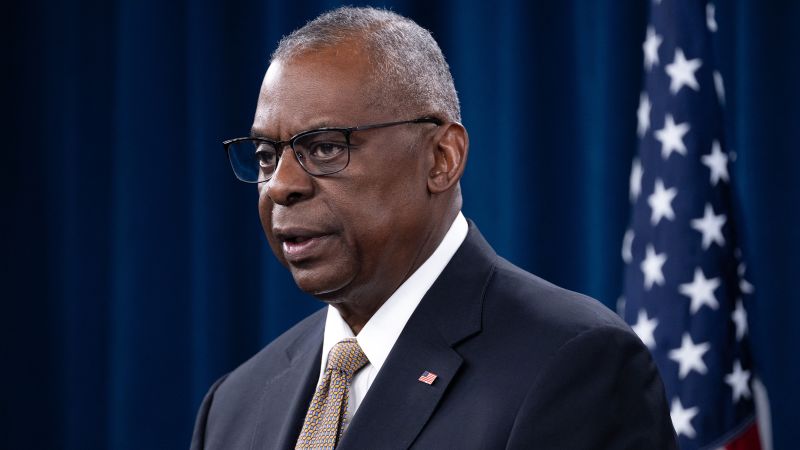US Secretary of Defense Lloyd Austin will be undergoing a “minimally invasive” and “non-surgical” procedure at Walter Reed Medical Center related to a bladder issue stemming from a prior surgery to treat prostate cancer. Prior to the procedure, Austin will be transferring his authorities temporarily to his deputy, Kathleen Hicks. This announcement comes as part of the Pentagon’s efforts to be more transparent about Austin’s health following controversy over previous undisclosed surgeries.
Austin had previously undergone two surgeries at Walter Reed in December and January without informing the president, his deputy, or the public, leading to criticism. In February, Austin admitted fault in not disclosing his hospitalizations and pledged to improve transparency moving forward. He acknowledged the mishandling of the situation and took full responsibility for not informing the necessary parties about his cancer diagnosis and subsequent treatments.
During his hospitalization on January 1 for complications related to the December prostate cancer surgery, Austin delegated his authorities to Hicks, who was not informed of the reason for the delegation. Despite being on vacation in Puerto Rico at the time of the procedure, Hicks had to exercise the secretary’s authorities remotely. A Pentagon review of the delayed notifications found no deliberate attempt to conceal information, but did highlight concerns for privacy as a reason for the lack of disclosure. Recommendations were made to improve processes surrounding delegation of authority to the deputy.
The review made a total of eight recommendations, which Austin has committed to implementing. These recommendations focus on creating training and communication plans to ensure officials and their staff are aware of their responsibilities during a transfer of authority. Additionally, there will be a review of internal reporting requirements for transfer of authorities from the general counsel. Austin is taking steps to ensure greater transparency and adherence to guidelines in similar situations moving forward.
The announcement of the upcoming procedure for Austin came as he was meeting with Kenyan President William Ruto at the Pentagon. Both leaders expressed their interest in working closely together and highlighted the strong relationship between the US and Kenya. Austin’s health concerns have brought attention to the need for openness and communication within the Department of Defense, particularly regarding the transfer of authorities during medical procedures. The ongoing efforts to improve transparency and adherence to protocols are aimed at ensuring smooth operations in the future.


